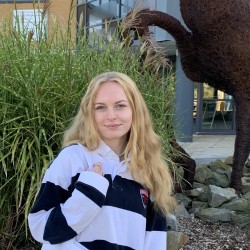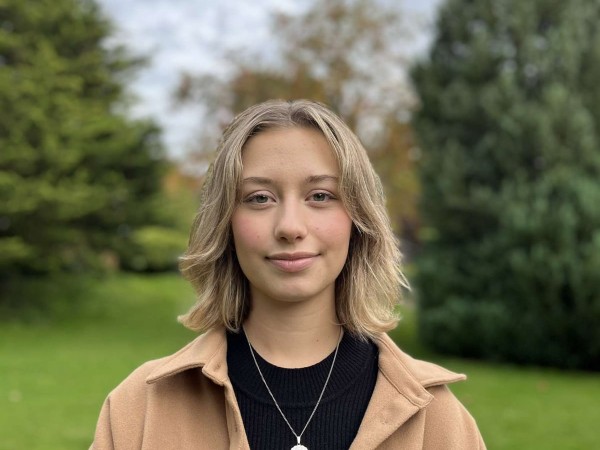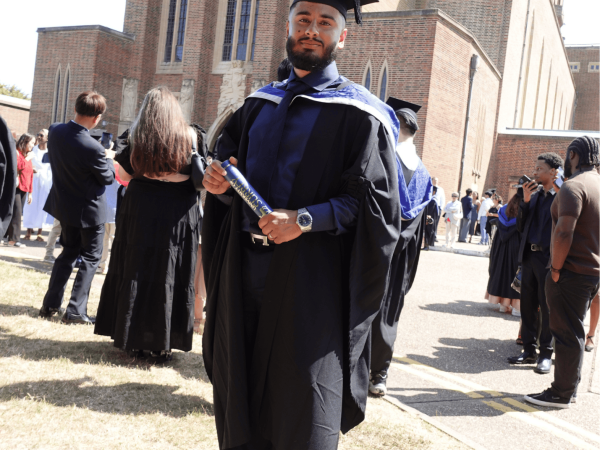
Isabel R.
"I have a strong interest in animal welfare, wildlife conservation, and humanitarian aid, so I would like to work in a field that allows me to help both people and animals while actively creating meaningful change."
Placement company
GeCCo (the Global Electric Cooking Coalition)What do you like about your course and why?
What I really love about my course is how it branches together different subject areas and draws on knowledge from other courses and disciplines, showing how sustainability can be integrated across a wide array of fields.
It’s exciting to explore these different perspectives - it’s helped me discover what I’m most interested in and opened up new ideas for where my future career could lead.
"I also really appreciate how we use real-world case studies, especially those linked to environmental issues, because they make the learning feel relevant and engaging."
Field trips have been a highlight too - bringing the theory to life and giving us the chance to apply our skills in real-world settings, which I find really rewarding.
What do you enjoy most about Surrey?
I really enjoy the nature on campus; the lake is such a lovely setting to sit with friends or even do my assignments and study. Watching the campus throughout the seasons is always a lovely experience, as is seeing the wildlife nearby.
I spend most of my time on campus and really appreciate the wonderful facilities and the cafes. Surrey Sports Park has also been a big part of my day-to-day life at uni, especially making use of the gym, exercise classes, and swimming.
Please tell us more about your placement
I've recently started a placement as a Communications Support Officer as part of GeCCo (the Global Electric Cooking Coalition), which sits within the MECS programme (Modern Energy Cooking Services). MECS is a UKAid-funded programme that aims to accelerate the transition from polluting cooking fuels to modern alternatives, with a particular focus on electric cooking.
Within MECS, GeCCo's goal is to enable and accelerate the rapid global scaling of electric cooking (e-cooking). In this role I will be creating content, driving LinkedIn engagement, and collaborating with communications of partner organisations to amplify the benefits of electric cooking and accelerate the global electric cooking transition. So far, I have really enjoyed meeting new people and hearing about their experience in this field.
"Some of my highlights so far have been blog writing on the topic of Madagascar's biodiversity and how e-cooking can protect this, watching webinars from London Climate Action Week, and collaborating with WWF and their CLEANaction initiative for protecting nature during the energy transition."
What do you want to do when you graduate?
I have a strong interest in animal welfare, wildlife conservation, and humanitarian aid, so I would like to work in a field that allows me to help both people and animals while actively creating meaningful change.
I’ve researched opportunities within the Environment Agency and charitable organisations like the RSPCA and WWF to better understand where my interests in environmental conservation and animal protection could be applied.
What's your advice to new students?
My advice would be to be open-minded — the course touches on a wide range of subjects, which helps you explore different angles and figure out where your true interests lie. If something doesn’t feel like your strength at first, it can still be incredibly eye-opening and valuable for shaping future pathways.
I would also say reading is so useful; it deepens your understanding and can really boost your confidence in seminars and assignments when referring to literature.

